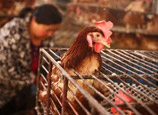
Fraud, again.
China's stock market has been hit by another scandal involving a company that inflated its books to be listed.
While the company, Wanfu Biotechnology (Hunan) Agricultural Development Co Ltd, and relevant intermediary agencies must receive their due punishments, regulators must reflect on how such a fraudulent company managed to get through the IPO procedure.
The China Securities Regulatory Commission said on April 3 that investigations showed the company started falsifying its books as early as 2008 in preparation for its listing, which was completed in 2011.
The company's shares first traded in September 2011 at a price of 25 yuan ($4) per share. The price slumped to 5.04 yuan a share at the close of trading on Monday, which means big losses for the 7,000 or so investors in the company, most of whom are individuals.
The company, however, raised 425 million yuan through its IPO, making its directors multimillionaires in the past years.
From 2008 to 2011, the company inflated its revenues by a total of 740 million yuan and net profits by 160 million yuan. In 2011, its real net profits were only 1.1 million yuan while it claimed they were 60.3 million yuan.
The case has made the headlines as one of the most serious frauds in China's stock market history.
The CSRC has vowed to mete out punishment in accordance with the law, and analysts said the company could be forced to delist from the market and some of the directors may face criminal charges.
But even if this turns out to be the case, this will not quell the anger of the investors that were cheated, because the company and its management are not the sole wrongdoers.



















![]()
